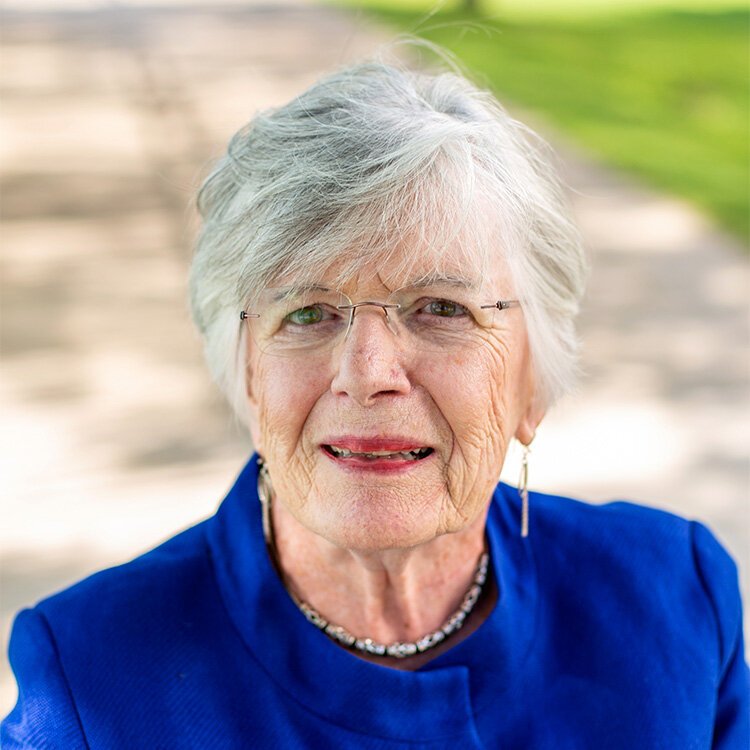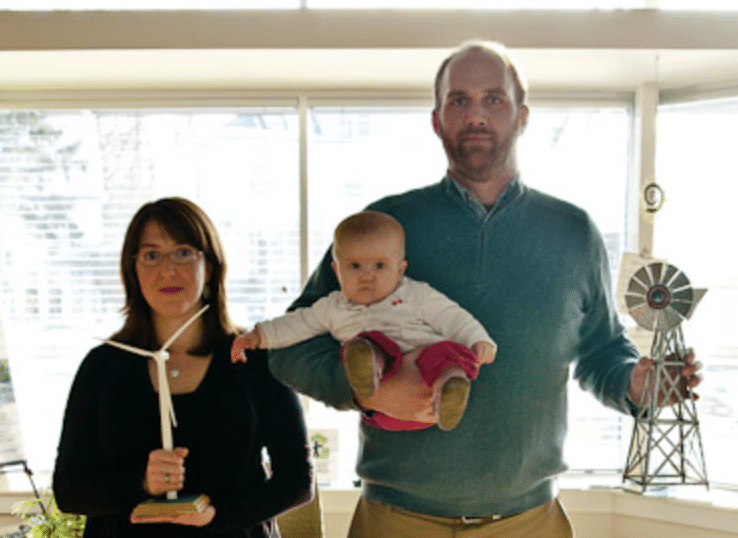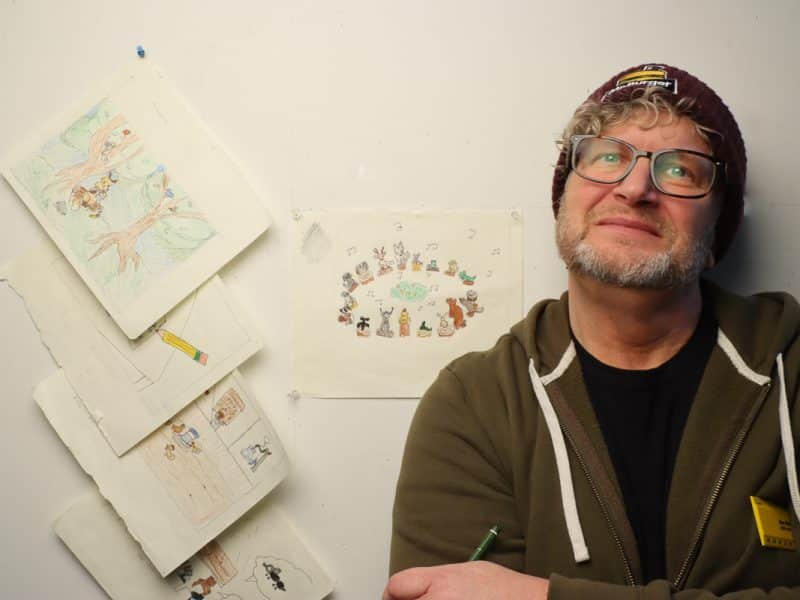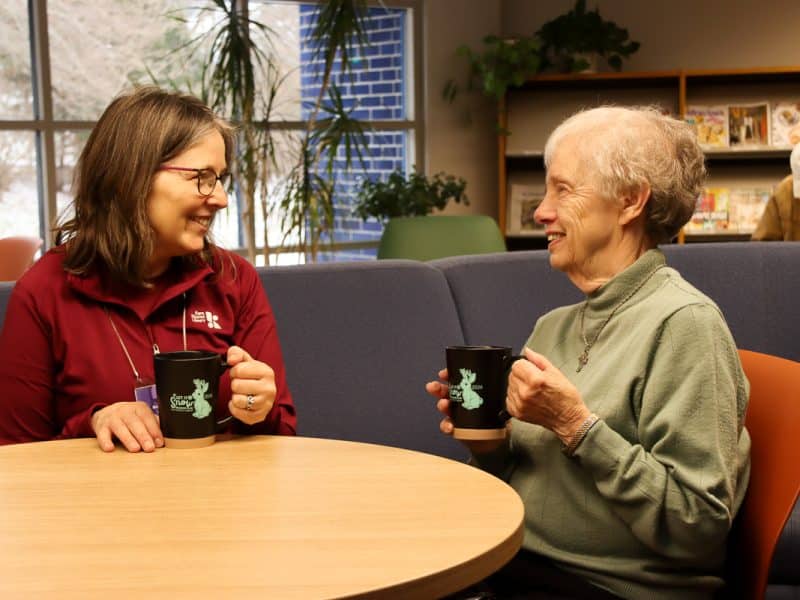RapidChat: Political activist Mary Alice Williams on gender equity and “fighting the good fight”
When it came to inequities between genders, "Something didn’t add up for me by the time I was a teenager," Gender Equity Advocate and Political Activist Mary Alice Williams proclaims. While over the years she has noticed gradual progress is being made in some areas, Mary strongly encourages young women to "leave the ladder down," so others know they too can climb.

When it came to inequities between genders, "Something didn’t add up for me by the time I was a teenager," Mary Alice Williams proclaims. While over the years she has noticed gradual progress is being made in some areas, Mary strongly encourages young women to "leave the ladder down," so others know they too can climb.
Rapid Growth: When did you first move to Grand Rapids? Why?
Mary Alice Williams: I moved to GR in 1974 when my husband accepted a teaching position at Aquinas College. Eastown Community Association was the first organization I became involved in because it was my neighborhood. In early organizing efforts it was invariably the women who understood the work and gave me credibility as a young organizer.
RG: What first sparked your passion for gender equity?
MW: Over time I came to a gradual recognition that girls and women are systematically denied access to tools and opportunities for full participation in the power structures that shape our communities. While there was no ‘aha’ moment, the evidence kept piling up that all around me [that] women were not being given consideration for the potential they had.
RG: Under what circumstances did you first notice inequities between genders?
MW: In the faith in which I was raised, where only men could be priests. In the local political arena, where all elected officials were men. Even in women dominated fields, like teaching and other helping professions, men were in positions of leadership and power. When I was a young girl the people who influenced me most were women. The nuns who taught me, the librarians who opened a wide world to me through books … yet none of them could advance to leadership positions in the parish, civic organizations, or politics, because they were women. Something didn’t add up for me by the time I was a teenager.
RG: Since you first moved here, have you seen any shifts in community perspectives (re: gender equity)?
MW: I would say gradual progress is being made in some areas. We have the women on our City Commission and in January, two of them will be women of color — the first African American woman and the first Latina woman. Yet in this 2019 election cycle I have had more than one man tell me he would never vote for a woman, so everything is relative. The church is still preoccupied with denying women reproductive autonomy and meaningful leadership roles. Attitudes may be shifting in the workplace, but pay inequity still exists and women can still enter a board room and be the only one. All of these inequities are compounded for women of color. Though with that being said, Title IX has had a significant positive impact on women in sports; young women can imagine themselves as athletes and champions as a result of its passage.
RG: Throughout the years, where do you feel like your efforts have made the biggest impact?
MW: There is a saying that all politics are local. I have volunteered on successful local campaigns of women candidates. From that of the longest-serving County Commissioner, Kathy Kuhn, to City Commissioners Linda Samuelson, Ruth Kelly, Senita Lenear, Mayor Rosalynn Bliss, and most satisfying the recent historic campaign of Commissioner-elect Milinda Ysasi. Each of these candidates were determined to serve the communities they represent with integrity. But first they had to win the seat that would make it possible. Local politics is all about the ground game, reaching the voters with credibility and authenticity. That’s the recipe. It’s not rocket science, but it works most of the time. If I have had impact it’s in knowing the ingredients of the recipe and refining it for each race. This frees a good candidate to focus with confidence in bringing her message to the voters.
RG: Do you have a favorite story that you’d like to share that you’ve experienced along this journey?
MW: There is so much that is discouraging right now, but my favorite part of every campaign is knocking on doors and talking to voters. With few exceptions, it is a positive experience. I have had strangers recognize me and come over in the grocery store months after an election and say, “I remember you”; “I voted for that candidate you told me about.” Reaching out to neighbors with a clear respectful story about why I’m supporting a candidate feels like the best and most effective way for me to be a citizen.
RG: What wisdom would you like to pass on to younger generations of women that are fighting the good fight?
MW: Don’t believe the voices that say “wait your turn” — just go for it. Believe that you belong at the table; don’t wait for an invitation — it will never come. And when you get there, bring others along. Congresswoman Deb Haaland speaks of “leaving the ladder down” so others know they too can climb. When I heard her say that, I thought “exactly.” Women can give voice to inequity from their lived experiences. When we support each other’s voices, we can magnify them. When we see each other. we become visible to each other and to power structures.
Jenna K. Morton is the RapidChat correspondent for Rapid Growth Media.









